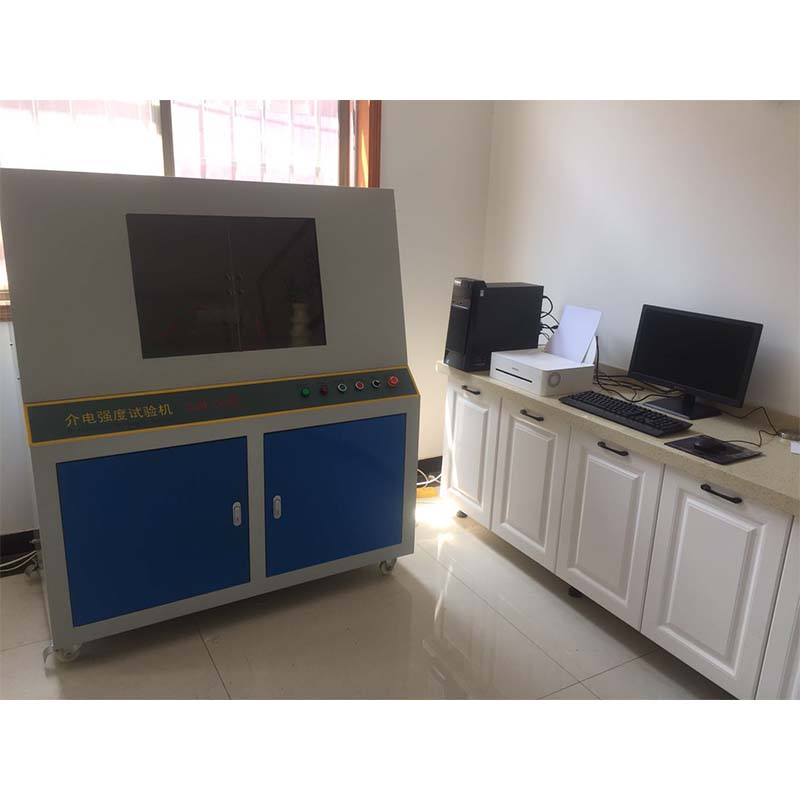Custom Cable Flexibility Testing Equipment for Enhanced Performance Evaluation
Custom Cable Flexibility Test Machine Enhancing Quality and Durability
In the rapidly evolving world of technology, the demand for high-quality cables is greater than ever. Whether it’s for telecommunications, automotive applications, or consumer electronics, the reliability of cables can significantly impact overall system performance. One critical aspect that engineers must consider when developing cables is their flexibility, which directly influences durability, ease of installation, and resistance to wear over time. To ensure that cables meet these rigorous standards, manufacturers are increasingly turning to custom cable flexibility test machines.
Understanding Cable Flexibility
Cable flexibility refers to a cable's ability to bend without sustaining damage or degrading performance. Cables that lack flexibility can suffer from stress and fatigue when bent during installation or regular use, leading to failures, interrupted services, and potentially costly repairs. Therefore, testing for flexibility is essential to verify that cables can withstand the dynamic environments in which they will operate.
The Role of Custom Cable Flexibility Test Machines
Custom cable flexibility test machines are designed specifically to assess the bending capabilities of various cable types. These machines can simulate real-world conditions by bending, twisting, and coiling cables, ensuring that they can perform under adverse conditions. Unlike generic testing machines, custom-built solutions can be tailored to fit specific requirements, accommodating different cable sizes, materials, and construction techniques.
Key Components of Flexibility Test Machines
A well-designed cable flexibility test machine is equipped with the following components
1. Bending Mechanism This is the core of the machine. It replicates the bending actions that cables might encounter during installation or operation. The bending radius and angles can be adjusted based on the type of cable being tested.
2. Control System An advanced control system allows operators to set parameters such as the number of cycles, bending angle, and speed. Some machines even offer programmable testing sequences to evaluate cables under various conditions.
3. Data Acquisition The machine is equipped with sensors to monitor real-time data during testing. This includes measurements of stress, strain, and potential failures, providing valuable insights into cable performance.
custom cable flexibility test machine

5. Safety Features Since the flexibility test involves mechanical movements, built-in safety mechanisms are essential to protect operators from accidents.
Benefits of Using Custom Test Machines
1. Enhanced Quality Control Cable manufacturers can ensure that their products meet industry standards and are capable of withstanding the rigors of daily use. By utilizing custom flexibility test machines, they can identify flaws early in the production process, reducing waste and rework.
2. Tailored Testing Procedures Custom machines can be designed to meet specific testing protocols required by different industries or sectors. This includes accommodating various types of cables, such as those used in harsh environments or high-performance applications.
3. Increased Efficiency Automated test cycles reduce the amount of time and labor required for testing. This allows manufacturers to increase throughput while maintaining high-quality standards.
4. Long-term Cost Savings By investing in custom flexibility test machines, manufacturers can minimize costly product failures by identifying weaknesses before the cables reach the market. This proactive approach ultimately saves money by reducing warranty claims and improving customer satisfaction.
5. Research and Development Engineers can use these machines for R&D purposes, experimenting with new materials and designs. This innovation helps drive the industry forward, resulting in cables that are not only flexible but also more durable and efficient.
Conclusion
In a world where technological advancements are reliant on the integrity of electrical connections, custom cable flexibility test machines play a pivotal role in ensuring that cables are up to the task. By investing in these specialized testing solutions, manufacturers can enhance quality control, streamline production, and foster innovation in cable design. As the demand for reliable and flexible cables continues to rise, the importance of robust testing methods will only become more pronounced, solidifying the role of custom flexibility test machines in the industry.
-
The Role of Tensile Force Testers in Quality Control and Material Science
NewsAug.01,2025
-
Maintenance and Safety Tips for Aging Ovens
NewsAug.01,2025
-
Density Balance in Forensic Science
NewsAug.01,2025
-
Advanced Optical Measurement Technologies
NewsAug.01,2025
-
A Buyer’s Guide to Tensile Test Machines
NewsAug.01,2025
-
Why the Conductor Resistance Constant Temperature Measurement Machine Redefines Precision
NewsJun.20,2025
 Copyright © 2025 Hebei Fangyuan Instrument & Equipment Co.,Ltd. All Rights Reserved. Sitemap | Privacy Policy
Copyright © 2025 Hebei Fangyuan Instrument & Equipment Co.,Ltd. All Rights Reserved. Sitemap | Privacy Policy
